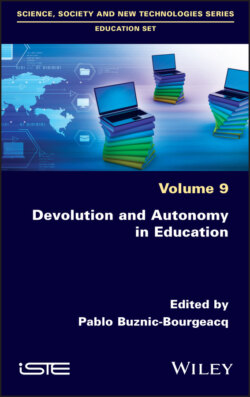Читать книгу Devolution and Autonomy in Education - Группа авторов - Страница 12
The student’s role in the devolution process
Оглавление“The student is well aware that the problem [situation] was chosen to help him/her acquire new knowledge” (Brousseau 1998, p. 59); however, the student does not know the teacher’s project, and, especially in elementary school, does not always know how to clearly identify the school subject concerned (Reuter 2007). Moreover, the student cannot know in advance the knowledge in question, which is one of the paradoxes of devolution:
The teacher has a social obligation to teach everything necessary about knowledge. The student – especially when he or she is failing – asks him or her to do so. So the more the teacher gives in to these requests and reveals what he or she wants, the more precisely he or she tells the student what he or she needs to do, the more likely the student is to lose his or her chances of obtaining and objectively observing the learning that he or she is actually trying to achieve (Brousseau 2003, p. 9).
One of student’s first roles in the devolution process is therefore to accept trusting the teacher, who is responsible for the situations he or she asks the student to invest.
The student is confronted with a milieu that he explores according to his previous situational knowledge. This interaction with the environment mobilizes or provokes the construction of situational knowledge whose nature depends on the actual situation. The student’s point of view is the opposite of the teacher’s: he or she must arrive at the institutional knowledge the teacher started with to create his or her teaching project, by constructing situational knowledge in a situation. However, numerous works (see, for example, Margolinas 2004; Coulange 2012; Clivaz 2014) show that very often the situations set up by the teacher lead some students:
– to invest a situation not foreseen and/or not observed and/or not favored by the teacher;
– to encounter useful but unrecognized situational knowledge that is not appropriate to the target knowledge;
– to find themselves in a gap with the knowledge encountered through institutionalization.
I insist on the fact that such situations are not “pathological” and it is undoubtedly their recognition and regulation rather than their avoidance that must be the object of our attention. Indeed, the student gives the teacher a part of his or her activity to see, which the teacher observes and interprets, based on his or her knowledge (Vignon 2014). The student thus informs the teacher, more or less voluntarily, about his or her own interpretation of the situation in place, which can help the teacher (Mercier 1998), when possible, to redirect the devolution of the programmed situation or at least to imagine a new future situation.
However, the clues which, for an external observer who is a tutor of mathematics, can be interpreted as the investment, by a student, of a situation installed by the teacher without the latter’s knowledge, or can be interpreted by the teacher as proof of inattention or of the academic or disciplinary difficulty of the same student, independent of the situation.
One of the student’s difficulties is that the situational knowledge that he or she actually encounters in a situation, the knowledge that he or she has managed to develop a little and that he or she would like the teacher to recognize and explain, is not always the knowledge that is institutionalized.
